In her book Master Photographers: The World's Great Photographers on Their Art and Technique, Pat Booth interviews some of the all-time greats, discussing iconic photographs, and taking some fine portraits of her own. It's nice to get a chance to go into a bit more detail than I normally do on this blog. Plus there are some great stories about famous portraits here.
Pablo Picasso by Robert Doisneau, 1952.
"This picture of Picasso was a pleasure to take. When I arrived at Villauris Picasso was having lunch with his wife and we talked, but we didn’t shoot any pictures. I came back the next day having realized by then that Picasso had a great sense of the ridiculous. I went to a baker I knew, who made the bread rolls that are on the table. The baker used to call them Picasso’s hands. When people pointed out that they had only four fingers he’d say, ‘Of course, that’s why they’re called Picasso’s hands’… Picasso was the best model I ever had. Everyone coming close to him received some gold dust."
Pat Booth talks with Ansel Adams about his photograph of Georgia O'Keeffe & Orville Cox, Canyon de Chelly National Monument, Arizona, 1937.
"I made that picture with my 35mm Zeiss Contax at the Canyon de Chelle, Arizona, in 1937. There was a storm coming up. I was down there with my Contax 3 and it was shot on Agfa Super Pan Supreme film. I think it’s one of my best photographs, but unfortunately, while the 36-exposure roll was drying, it fell to the floor and this picture was in the section I stepped on! There were some very good pictures on that roll but this was by far the best. The scratch marks have been removed with the greatest care, but it remains difficult to make a fine print from that negative. Such is life! However, the image is a very popular one so I consider myself lucky."
Marlene Dietrich by Eve Arnold, 1952
Pat Booth comments that Arnold seems to deliberately deglamorize Dietrich. Arnold replies:
"Robert Capa got it right when he said, metaphorically, that my work fell between Marlene Dietrich’s legs & the lives of migratory potato pickers!"
Coco Chanel by Horst P. Horst, Paris, 1937.
"This photograph of Chanel is probably my favourite and it was her favourite portrait of herself. She had had a big row with Vogue and they hadn’t even been allowed to see her collection for a year or two, let alone take photographs of her and her dresses. She telephoned them one day and said that she wanted to photographed by me. Of course Vogue were madly excited.
"She arrived after lunch at the Bois de Boulogne and I shot this picture on a sofa that had once belonged to Marie Antoinette. She phoned me the next day and wanted to order lots of prints and asked me how much she owed me. I said, ‘The pleasure that you have given me by liking my picture is payment enough’. Well, after that she couldn’t do enough for me."
Pat Booth discusses another Georgia O'Keeffe portrait, this time by Yousuf Karsh, who took this shot in New Mexico in 1956.
"She has no time to spare for people, not because she doesn’t like them, but because she loves her painting more, and every moment spent with people means less time for her art. My portrait had to reflect those qualities - simplicity, austerity, dedication - so I caught her in profile, making a point of her strong hands. White hands against a black dress give the impression of calm serenity, and yet her determination comes across as well."
In his interview with Pat Booth, Arnold Newman mentions something I didn't know, when they were discussing his famous portrait of Igor Stravinsky in New York in 1946.
"Harper’s rejected this photograph, by the way, although they were rather pleased to print it a bit later on!"
Another Arnold Newman portrait, of Marilyn Monroe, taken in Hollywood in 1962.
"It’s a rarity. I was shooting candid pictures and actually this is just a small portion of a 35mm shot, which has been pushed like mad. The texture isn’t artificial. It was shot with Tri-X film rated at 1200. It was after dinner and there was almost no light in the room. I thought it was completely typical of her so I made a big blow-up of that head. It’s been a very popular photograph."
When Pat Booth & Arnold Newman were discussing his famous portrait of Igor Stravinsky in New York in 1946, he mentions something I didn't know:
"Harper’s rejected this photograph, by the way, although they were rather pleased to print it a bit later on!"
Pat Booth asks Arnold Newman, "Did you consciously imitate Francis Bacon’s work in your 1975 portrait of him?"
"Now when I took this photograph of Bacon in his studio he just happened to be standing beneath the skylight, with this bulb hanging down. I realized to my astonishment that it resembled some of his own paintings. It was pure accident. I said, ‘For God’s sake don’t move’, pulled the camera over, got into position and clicked the shutter. Strangely enough one New York critic said it was a contrived photograph, but in fact it was one of the most spontaneous pictures I had ever taken."
























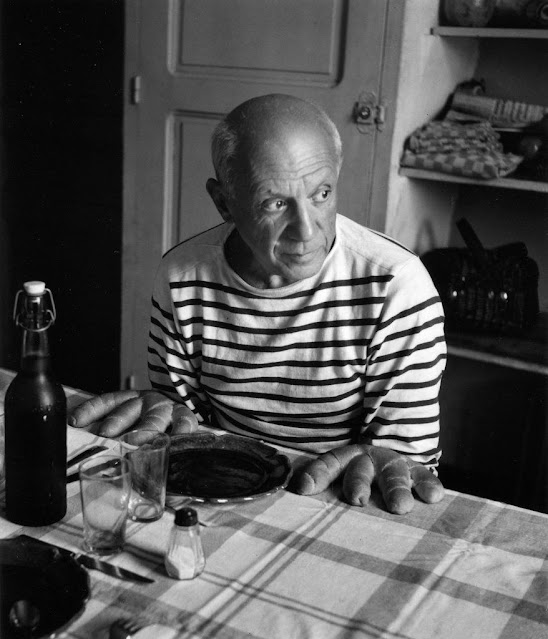

.png)



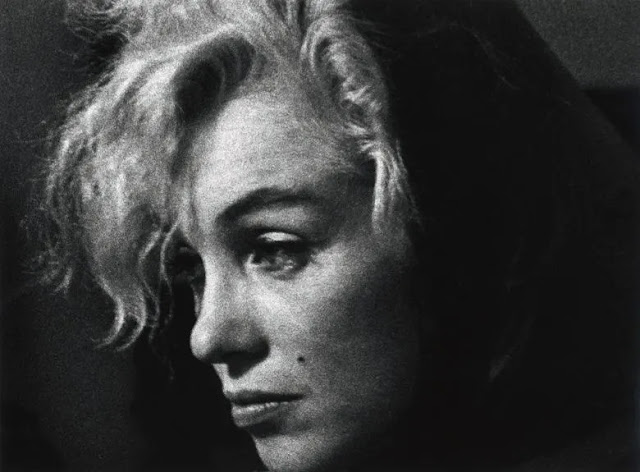




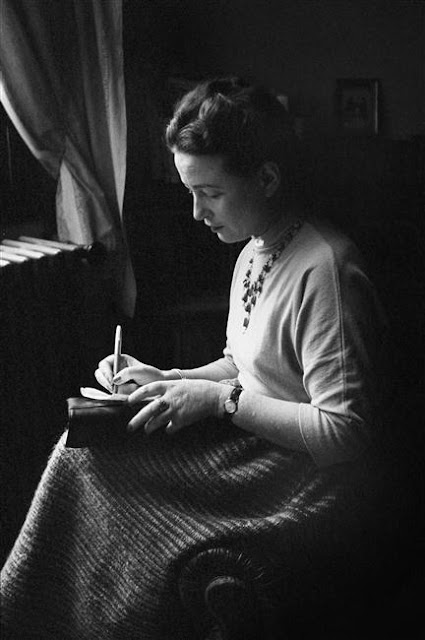

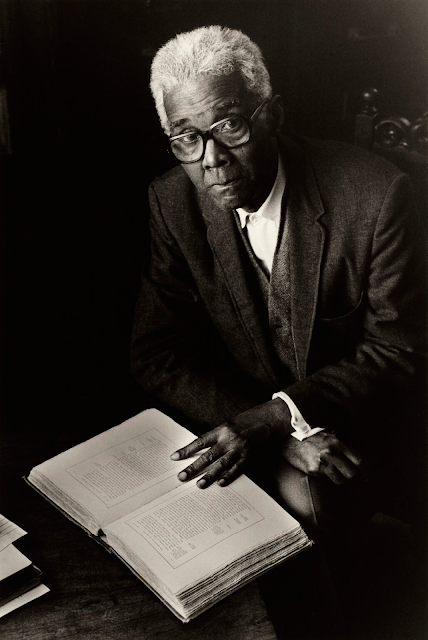

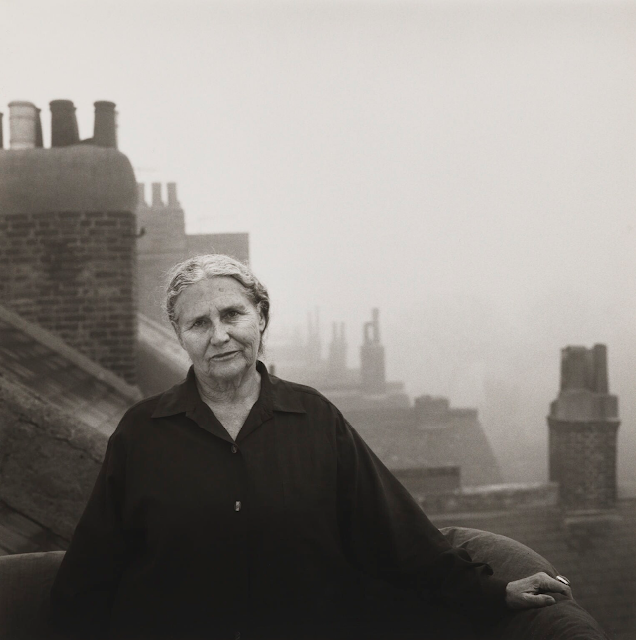


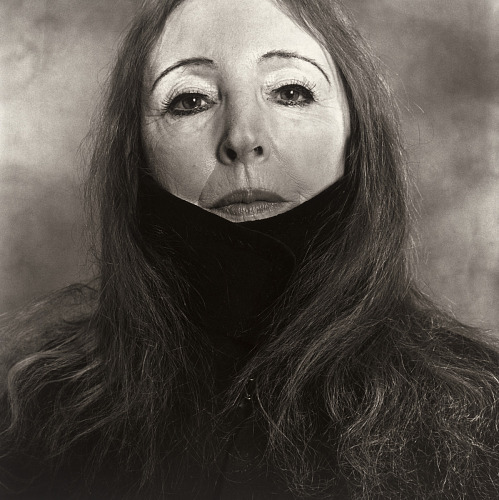



.jpeg)

















